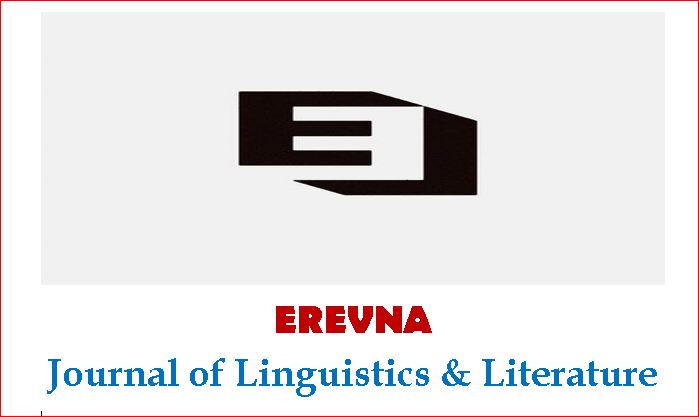The Relevance of the Genre Approach in the context of the tertiary level students of Bangladesh
DOI:
https://doi.org/10.1234/ejll.v5i2.235Abstract
The genre approach to teaching writing, although a more recent approach when compared to the process or the product approach, has received considerable attention in teaching writing. Several factors contribute to its wide acceptance including its strong theoretical underpinning, its focus on students’ needs, and the context of writing. In the case of second language (L2) writing instruction, the genre-based approach has strong implications as it clearly states what learners need to learn and provides a logical framework for studying language as well as the context in which the language is produced. At the tertiary level, writing is often deemed as the most important language skill because students at higher learning institutes are mostly assessed through their writing performance. However, for second language learners, academic writing may seem to be a daunting task if they do not have prior academic writing experience or if they lack proper linguistic knowledge. For these novice student writers, genre-based writing instruction is often considered appropriate as this approach draws learners’ attention to the formal and functional features of the text making them understand why the linguistic features and conventions are used to elicit the desired communicative goals. This article explores the relevance of genre-based instruction in the tertiary level second language writing instruction of Bangladesh and the ways in which this approach can be integrated with the tertiary level academic writing programs of the country.
References
Almacıoğlua, G., Okanb,Z. (2018) Genre-based approach to writing instruction for students at an english language and literature department. Eurasian Journal of Applied Linguistics,4(1), 71–100
Afrin, Shagia. (2016). Writing Problems of non-english major undergraduate students in Bangladesh: An Observation. Open Journal of Social Sciences, 04, 104-115. doi:10.4236/jss.2016.43016.
Badger, R., White, G. (2000). Product, process and genre: Approaches to writing in EAP [Electronic version]. ELT Journal, 54(2) ,153-160.
Bhatia, V. K. (1993). Analyzing genre: Language use in professional settings. New York: Longman.
Christie, F., & Martin, J, (Eds.) (1997). Genre and institutions: Social processes in the workplace and the school. Cassell: London
Douangmala, P., Widyantoro, A. (2018). The use of genre-based approach instruction to improve students’ ability in writing short-essays. International Journal of Science and Research 7(5).
Dias, P., & Pare P. (Eds.) (2000) Transitions: Writing in academic and workplace settings. Hampton Press, Cresskill, NJ.
Dixon, J. (1987) The question of genres. In Reid, I. (Ed.). The place of genre in learning: Current debates. Deakin University Press: Deakin, Australia.
Dudley-Evans, T. (1994) Genre analysis: An approach to text analysis for ESP. In Coulthard, M. (Ed.). Advances in written text analysis. London: Routledge.
Flowerdew, L. (2000). Using a genre-based framework to teach organizational structure in academic writing. ELT Journal, 54(4),369-378.
Han, J., Hiverb, P. (2018) Genre-based L2 writing instruction and writing-specific psychological factors: The dynamics of change. Journal of Second Language Writing. 40, 44–59.
Hammond, J. & Derewianka, B. (2001). Genre. In R. Carter & D. Nunan (Eds.). The Cambridge guide to teaching English to speakers of other languages (pp. 186-193). Cambridge: Cambridge University Press.
Hamid, M. O., Baldauf, R. B. (2008). Will CLT bail out the bogged down ELT in Bangladesh? English Today, 24,16-24. http://dx.doi.org/10.1017/S0266078408000254.
Hyder, M.Z., Chowdhury, T.A. (2012) Repositioning of CLT from curriculum to classroom: A Review of the English language instructions at Bangladeshi secondary schools. International Journal of English Linguistics, 2(4), 12-22.
Hyland, K. (2007). Genre pedagogy: Language, literacy and L2 writing instruction. Journal of Second Language Learning, 16(3),148-164.
Hyland, K. (2004). Genre and second language writing. Ann Arbor, MI: The University of Michigan Press.
Kim, M. (2012). Genre based approach to teaching writing. Asian ESP Journal, 8(3), 33-39.
Mustaque, S. (2014) Writing problems among the tertiary level students in Bangladesh: A Study in Chittagong Region. Language in India, 14, 334.http://www.languageinindia.com/jan2014/shakiladissertation.html
Poynton, C. (1986). Writing in the primary school. In Painter, C. and Martin, J. (Eds.) Writing to mean: Teaching genre across the curriculum. Sydney: Applied Linguistics Association of Australia.
Reppen, R. (2002). A genre-based approach to content writing instruction. In Richards, J. C. & Renandya, W. A. (Eds.). Methodology in language teaching: An anthology of current practice (pp. 321-327). Cambridge, England: Cambridge University Press.
Sirisuda and Wisut (2020). The impact of genre based instruction on efl learners' writing development. International Journal of Instruction, 13 (1), 1-16.
Shamsuzzaman ,M. , Everat, J., and McNeill, B. (2013). An investigation of the relationship between instructors’ background and teaching of second language writing in Bangladesh. International Journal of Innovation in English Language, 3 (1).
Swales, J. M. (2004). Research genres. Cambridge University Press: New York
Swales, J. M. (1990). Genre analysis: English in academic and research settings. Cambridge,UK: Cambridge University Press.
Truong, T., N., T. (2017) Teaching writing using genre-based approach: A Study at a Vietnamese university Language Education in Asia, 8(2), 192-212.
Citation of the paper
Ara, A. (2021). The relevance of the genre approach in the context of the tertiary level students of Bangladesh. Erevna: Journal of Linguistics and Literature, 5(2), 51-62.





